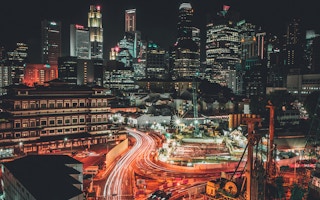Through the inherently integrated nature of urban development, the 11th Sustainable Development Goal (SDG) impacts a wide range of 2030 Agenda issues from sustainable consumption and production to affordable and clean energy along with health, sustainable transportation, clean water and sanitation. Basically, life on land.
According to the UN, cities are where the struggle for global sustainability “will either be won or lost.”
“Urbanisation is one of the most important issues when it comes to sustainable development,” Maimunah Mohd Sharif, Executive Director of UN-Habitat, told journalists at UN Headquarters in New York.
“We must make sure we do it right if we are to achieve the SDGs and move towards a world where we see an end to poverty, the protection of our planet and everyone enjoying peace and prosperity,” she added.
While SDG 11 pledges to make cities and human settlements safe, inclusive, resilient and sustainable by 2030, local and national authorities are making uneven progress towards achieving that goal, according to the UN.
A new report by UN-Habitat and partners tracking SDG progress since their 2015 adoption coincides with the first review of SDG 11 at the HLPF.
“
Cities are the spaces where all SDGs can be integrated to provide holistic solutions to the challenges of poverty, exclusion, climate change and risks.
Maimunah Mohd Sharif, executive director, UN-Habitat
At the current rate of expansion, over 700 cities will have populations of more than one million by 2030.
While cities can be powerhouses of economic growth and development, without proper planning and regulation, they could, among other things, suffer soaring levels of poverty, crime and pollution, says UN-Habitat.
“Cities are the spaces where all SDGs can be integrated to provide holistic solutions to the challenges of poverty, exclusion, climate change and risks,” affirmed Ms. Sharif.
Leilani Farha, UN Special Rapporteur on adequate housing, told the HLPF that although there are no global homeless statistics, “housing conditions are fraught.”
She underscored that some six billion people are inadequately housed worldwide and that close to 900 million people are living in informal settlements and encampments in both the global North and South.
“If we do not find housing solutions, no State will be able to meet their Agenda 2030 commitments because without access to adequate, secure and affordable housing there is no equality, there is no end to poverty, to health and well-being, to sustained access to education, to employment,” she added.
Established in 2012, the HLPF meets annually under the auspices of the Economic and Social Council (ECOSOC). It is the main United Nations platform on sustainable development and it has a central role in the follow-up and review of the 2030 Agenda and the SDGs at the global level. The Agenda with its 17 Global Goals were adopted in 2015 by UN Member States and aim to protect the planet and ensure that all people enjoy peace and prosperity.
Historic step
Meanwhile in the afternoon, New York City took the distinction of becoming the first city in the world to report directly to the international community on its efforts to reach global benchmarks in addressing poverty, inequality and climate change by 2030.
Among other accomplishments, its Voluntary Local Review (VLR) showcased significant achievements in cleaner air and water, record job and wage growth, and tripling the number of children in free pre-Kindergarten.
“We encourage cities and communities to join the urgent discussion about what is working on the local level, and how we can address the shared challenges that remain on the way to reaching the Global Goals,” said Penny Abeywardena, NY Commissioner for International Affairs.
Moreover, Mayor Bill de Blasio declared Wednesday, 11 July 2018, as Global Goals Day in New York City, to welcome HLPF participants and express local solidarity with efforts worldwide to achieve the goals.
Applauding the Mayor’s leadership and New York on the SDGs, Secretary-General António Guterres noted that the UN recently launched the Local2030 platform for cities and local governments to pursue new pathways for low-emission growth and climate action, poverty alleviation and inclusion of the most vulnerable residents.
“This Voluntary Local Review is a first step towards such progress and I urge other cities and local governments to follow suit,” he said.








